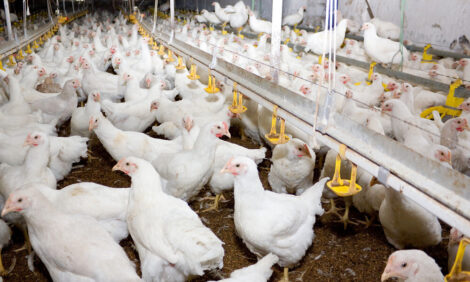



Coalition Urges EPA to Waiver RFS Due to Drought
US - As drought conditions become the worst in 50 years and corn yields are expected to drop significantly, a coalition of meat and poultry organisations yesterday (30 July) asked the US Environmental Protection Agency to waive the federal mandate for the production of corn ethanol.The Renewable Fuels Standard (RFS) requires 13.2 billion gallons of corn-based ethanol to be produced in 2012 and 13.8 billion gallons in 2013, amounts that will use about 4.7 billion and 4.9 billion bushels, respectively, of the nation’s corn.
In a petition delivered to EPA Administrator Lisa Jackson, the coalition asked for a waiver “in whole or in substantial part” of the amount of renewable fuel that must be produced under the Renewable Fuels Standard for the remainder of this year.
Some agricultural forecasters are estimating that just 11.8 billion bushels of corn will be harvested this year – about 13 billion were harvested in 2011 – meaning corn-ethanol production will use about four of every 10 bushels.

The RFS has “directly affected the supply and cost of feed in major agricultural sectors of this country, causing the type of economic harm that justifies issuance of an RFS waiver,” said the coalition in its petition.
It pointed out that EPA was granted the authority in the 2005 Energy Policy Act, which set the initial RFS, and in the 2007 Energy Independence and Security Act, which expanded the fuels standard, to waive because of severe economic or environmental harm the annual volume of renewable fuel that must be produced.
In asking Ms Jackson to take prompt action to provide a measure of relief for livestock and poultry producers, the coalition petition said: “It is abundantly clear that sufficient harm is occurring now and that economic conditions affecting grain supplies and feed prices will worsen in the months ahead. Both conditions provide an independent basis for a waiver of the RFS.”
“America’s pork producers are extremely worried, given the drought affecting much of the corn-growing regions, about having feed for their animals,” said NPPC President-elect Randy Spronk, a producer from Edgerton, Minn. “And their anxiety is compounded knowing that the RFS requires corn ethanol to be produced no matter what. We’re asking EPA to give livestock and poultry producers and, ultimately, consumers a little help.”
Waiver "would not help"
Responding to the waiver petition, Bob Dinneen, Renewable Fuels Association (RFA) president and CEO said: "Given the flexibilities inherent to the RFS, and the fact that waiving the programme would not result in any meaningful impacts on corn prices, we fully expect Administrator Jackson to deny any waiver request.
"A dispassionate review of the facts can lead to only one conclusion: a waiver of the RFS would simply reward oil companies that have long sought to repeal this very important and successful programme. The RFS has reduced our dependence on imported oil and saved consumers at the pump."
Mr Dinneen continued: "We understand the hardships facing the agriculture industry this summer are serious. From extremely poor pasture conditions to heat stress on animals to reduced crop yield potential, this summer’s circumstances have been difficult. However, waiving the RFS won’t bring the type of relief the livestock groups are seeking, nor will it result in significantly lower feed prices. In fact, because ethanol plants also produce a high protein feed, limiting ethanol production will only further complicate drought related feed issues and costs."
A recent analysis by Professor Bruce Babcock at Iowa State University simulated the corn price impacts of a 100 per cent waiver of the RFS during the upcoming 2012/13 corn marketing year, finding that a waiver might result in only a 4.6 per cent reduction in corn prices.
Professor Babcock concluded that: "The desire by livestock groups to see additional flexibility in ethanol mandates may not result in as large a drop in feed costs as hoped.” Professor Babcock further found: "The flexibility built into the Renewable Fuels Standard allowing obligated parties to carry over blending credits (RINs) from previous years significantly lowers the economic impacts of a short crop, because it introduces flexibility into the mandate."
A copy of the petition is available by clicking here.








